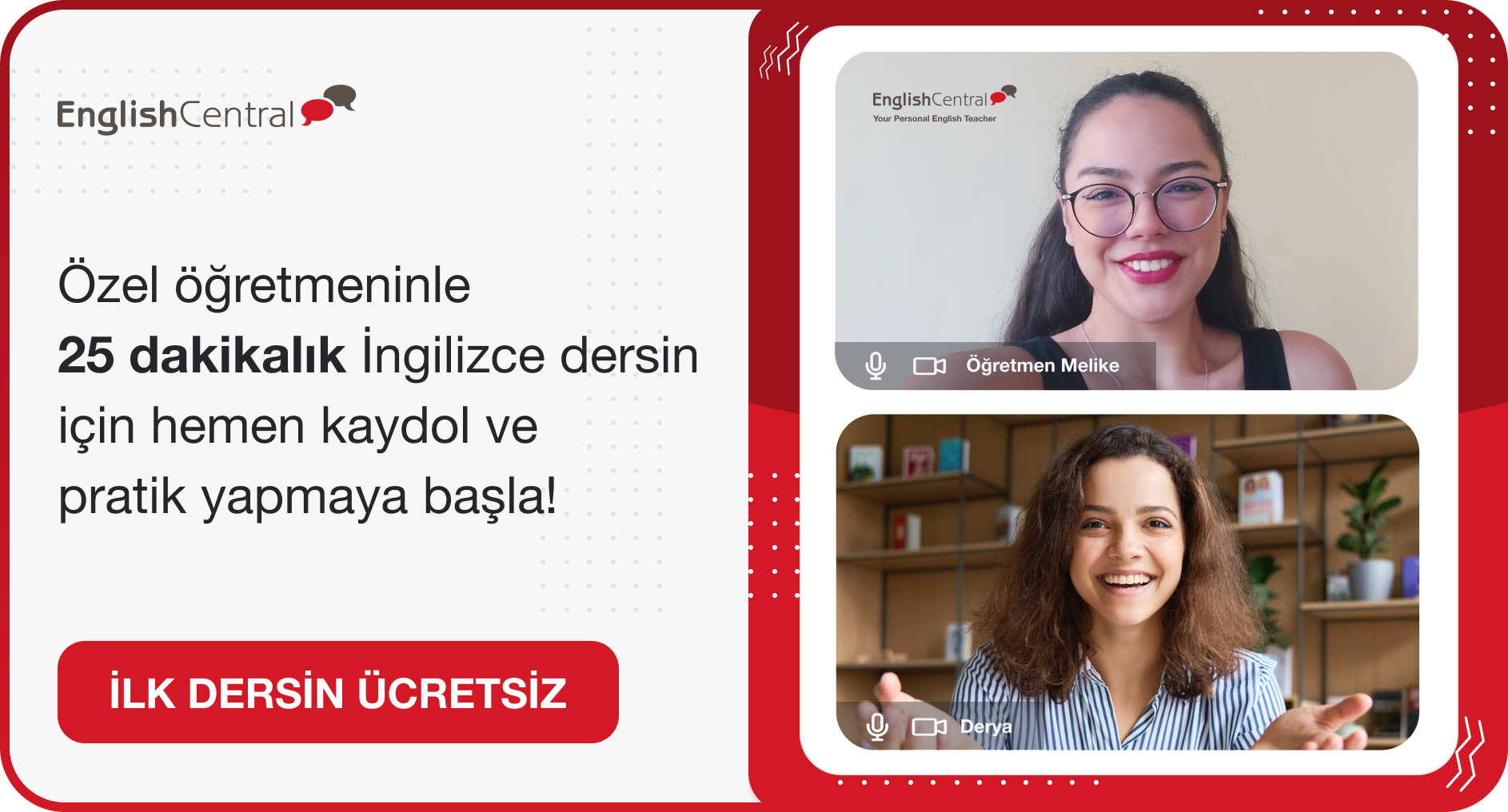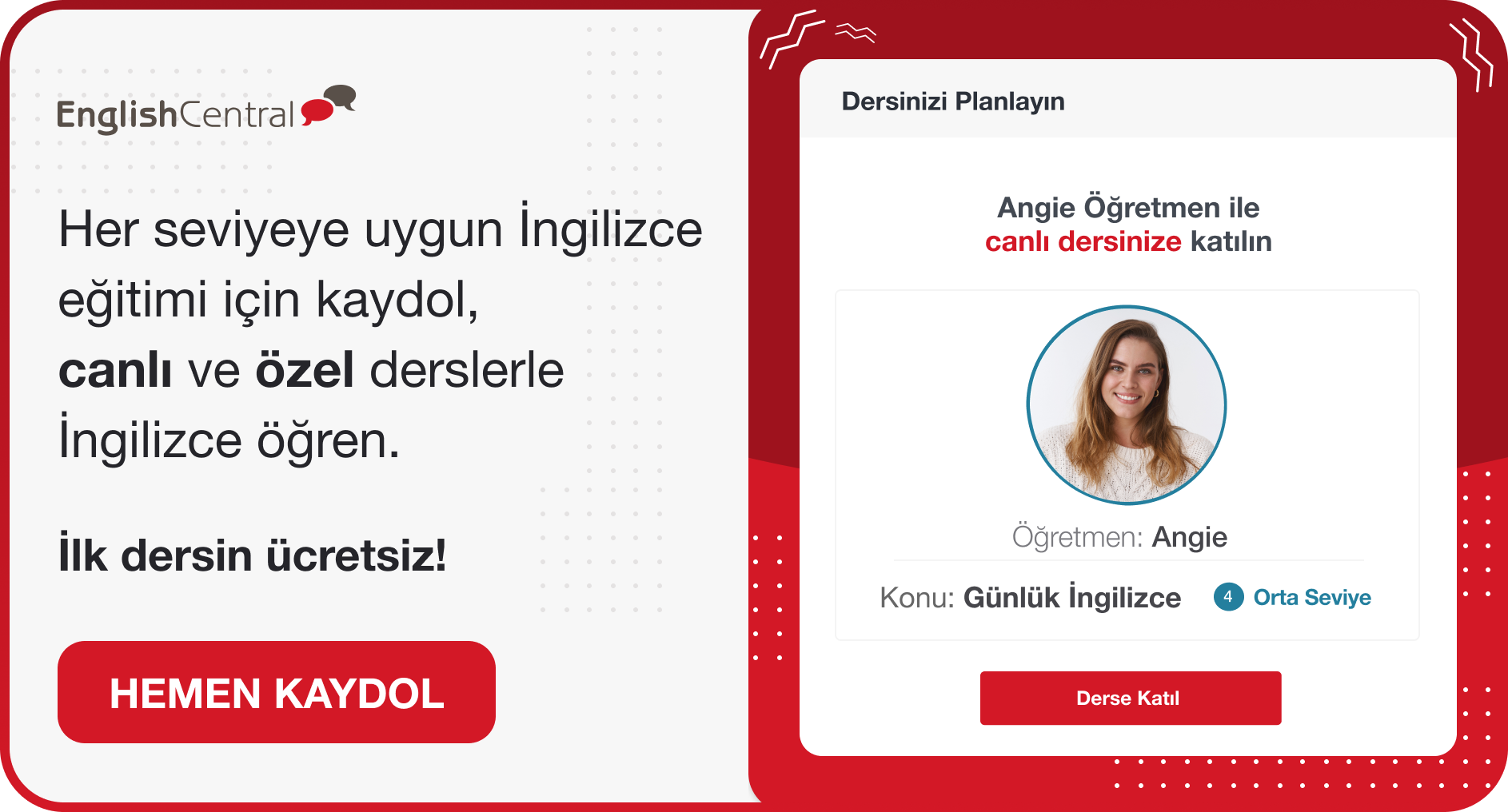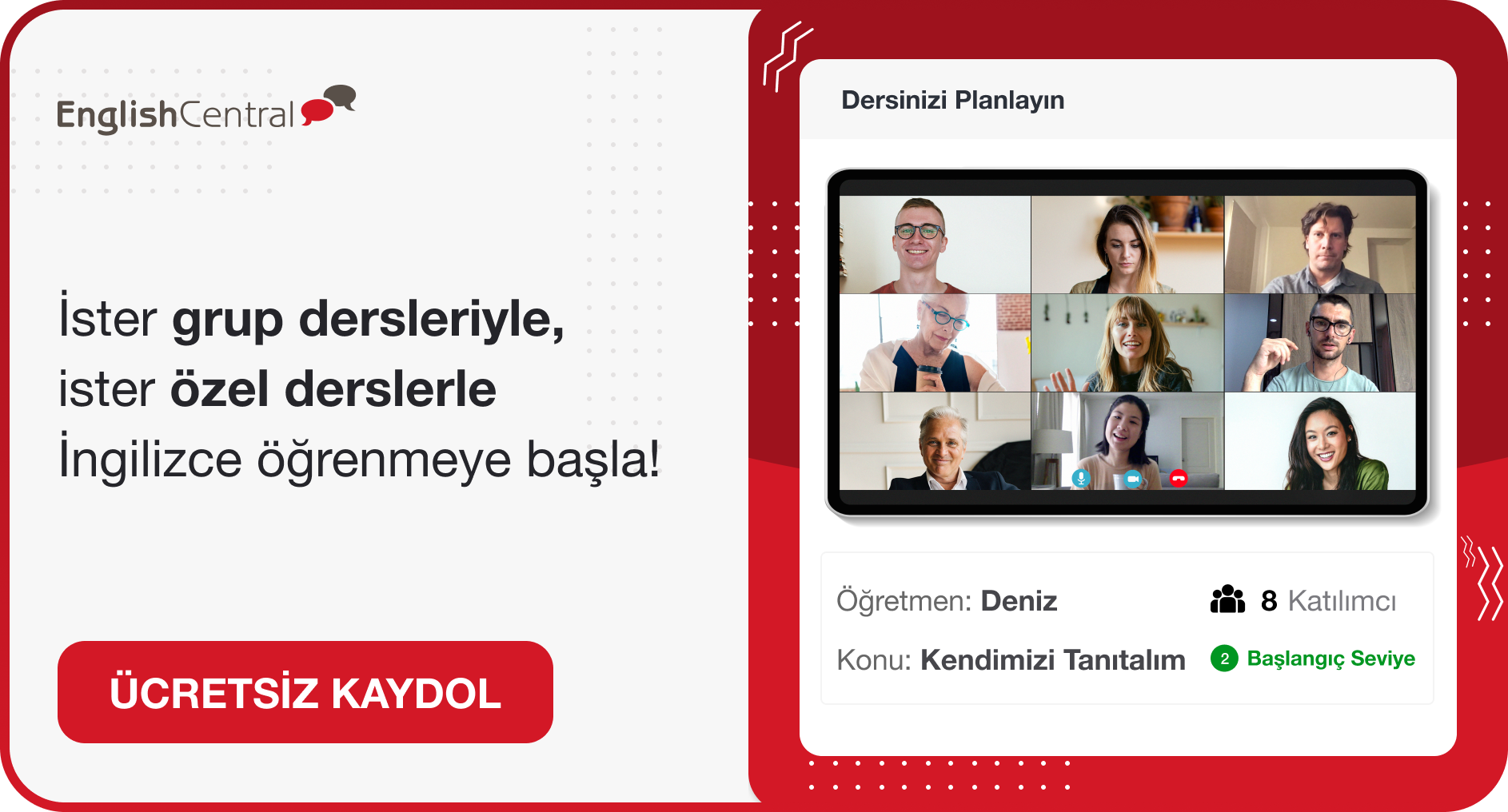İngilizce Teyit Soruları (Tag Questions), bir cümlenin sonuna eklenen kısa sorularla, verilen bilginin doğruluğunu teyit etmek ya da konuşma sırasında karşı tarafın fikir ya da onayını almak için kullanılan yapılar arasında yer alır. Gündelik İngilizce konuşmalarda sıkça kullanılan bu ifadeler, iletişimi daha doğal ve akıcı hale getirir. Hem resmi hem de gayri resmi durumlarda karşımıza çıkabilen teyit soruları, konuşmacının karşısındaki kişiyle bir bağ kurmasına ve sohbeti daha interaktif bir hale getirmesine yardımcı olur. Bu içerikte, Tag Questions yapısının nasıl oluşturulduğunu, kullanım kurallarını ve yaygın örneklerini inceleyeceğiz.
İngilizcede Tag Questions Nedir?
Tag Questions, bir cümlenin sonunda yer alan kısa sorulardır ve genellikle bir bilgiye onay almak ya da konuşmayı daha doğal bir hale getirmek için kullanılır. Türkçede “Değil mi?” ifadesine benzer bir yapıya sahiptir. Bu sorular, pozitif bir cümlenin ardından negatif bir soru ya da negatif bir cümlenin ardından pozitif bir soru şeklinde eklenir. Örneğin, “You’re coming, aren’t you?” (Geliyorsun, değil mi?) veya “She isn’t here, is she?” (O burada değil, değil mi?) gibi. Tag Questions, konuşmalarda hem karşımızdaki kişinin düşüncelerini öğrenmek hem de sohbeti daha akıcı hale getirmek için önemli bir araçtır.
İngilizce Olumlu Cümlelerde Tag Questions Kullanımı
İngilizcede olumlu bir cümleye tag question (teyit sorusu) eklenirken genellikle olumsuz bir yapıyla tamamlanır. Bu yapı, cümleyi teyit etmek veya dinleyiciden bir onay almak için kullanılır. Tag questions, yardımcı fiil (auxiliary verb) ve özne (subject) kullanılarak oluşturulur. Temel kural şudur: Eğer ana cümle olumlu ise, tag kısmı olumsuz olur.
Simple Present Tense
-They are just like us, aren’t they? (Onlar tam bizim gibi, değil mi?)
-You are coming to the party, aren’t you? (Partiye geliyorsun, değil mi?)
-She speaks Spanish fluently, doesn’t she? (O, İspanyolcayı akıcı bir şekilde konuşuyor, değil mi?)
-They will arrive soon, won’t they? (Yakında gelecekler, değil mi?)
-He has been here before, hasn’t he? (Daha önce burada bulunmuştu, değil mi?)
-We should start early, shouldn’t we? (Erken başlamalıyız, değil mi?)
-It’s a beautiful day, isn’t it? (Güzel bir gün, değil mi?)
-You enjoy listening to music, don’t you? (Müzik dinlemekten hoşlanıyorsun, değil mi?)
-The train leaves at 8 o’clock, doesn’t it? (Tren saat 8’de kalkıyor, değil mi?)
-He loves chocolate, doesn’t he? (O, çikolatayı seviyor, değil mi?)
Present Continuous Tense
-She is studying for her exams, isn’t she? (O, sınavlarına çalışıyor, değil mi?)
-They are playing football in the park, aren’t they? (Onlar parkta futbol oynuyor, değil mi?)
-He is watching TV right now, isn’t he? (O, şu anda televizyon izliyor, değil mi?)
-We are having dinner together later, aren’t we? (Daha sonra birlikte akşam yemeği yiyoruz, değil mi?)
-You are reading that new book, aren’t you? (O yeni kitabı okuyorsun, değil mi?)
-The kids are playing quietly, aren’t they? (Çocuklar sessizce oynuyor, değil mi?)
-She is singing beautifully, isn’t she? (O, güzel bir şekilde şarkı söylüyor, değil mi?)
-I am waiting for the bus, aren’t I? (Otobüs bekliyorum, değil mi?)
-They are staying at a hotel, aren’t they? (Onlar bir otelde kalıyor, değil mi?)
-You are taking English lessons, aren’t you? (İngilizce dersleri alıyorsun, değil mi?)
Simple Past Tense
-You finished your homework, didn’t you? (Ödevini bitirdin, değil mi?)
-She went to the park yesterday, didn’t she? (Dün parka gitti, değil mi?)
-They played football last weekend, didn’t they? (Geçen hafta sonu futbol oynadılar, değil mi?)
-He watched a movie last night, didn’t he? (Dün gece bir film izledi, değil mi?)
-We had dinner together, didn’t we? (Birlikte akşam yemeği yedik, değil mi?)
-I called you in the morning, didn’t I? (Sabah seni aradım, değil mi?)
-She told you the truth, didn’t she? (Sana doğruyu söyledi, değil mi?)
-They traveled to Italy, didn’t they? (İtalya’ya seyahat ettiler, değil mi?)
-He completed the project on time, didn’t he? (Projeyi zamanında tamamladı, değil mi?)
-You bought a new phone, didn’t you? (Yeni bir telefon aldın, değil mi?)
Past Continuous Tense
-You were studying for the exam, weren’t you? (Sınav için çalışıyordun, değil mi?)
-She was reading a book, wasn’t she? (Bir kitap okuyordu, değil mi?)
-They were playing outside, weren’t they? (Dışarıda oynuyorlardı, değil mi?)
-He was working on his project, wasn’t he? (Projesi üzerinde çalışıyordu, değil mi?)
-We were watching a movie, weren’t we? (Bir film izliyorduk, değil mi?)
-I was talking to you on the phone, wasn’t I? (Telefonla seninle konuşuyordum, değil mi?)
-She was cooking dinner, wasn’t she? (Akşam yemeği pişiriyordu, değil mi?)
-The kids were laughing loudly, weren’t they? (Çocuklar yüksek sesle gülüyorlardı, değil mi?)
-He was driving to work, wasn’t he? (İşe gidiyordu, değil mi?)
-You were waiting for the bus, weren’t you? (Otobüsü bekliyordun, değil mi?)
Present Perfect Tense
-You have finished your homework, haven’t you? (Ödevini bitirdin, değil mi?)
-She has traveled to Paris, hasn’t she? (Paris’e seyahat etti, değil mi?)
-They have cleaned the house, haven’t they? (Evi temizlediler, değil mi?)
-He has joined the meeting, hasn’t he? (Toplantıya katıldı, değil mi?)
-We have seen this movie before, haven’t we? (Bu filmi daha önce izledik, değil mi?)
-I have completed the project, haven’t I? (Projeyi tamamladım, değil mi?)
-She has visited her grandparents, hasn’t she? (Büyükanne ve büyükbabasını ziyaret etti, değil mi?)
-The children have done their chores, haven’t they? (Çocuklar görevlerini yaptılar, değil mi?)
-He has written a book, hasn’t he? (Bir kitap yazdı, değil mi?)
-You have bought a new car, haven’t you? (Yeni bir araba aldın, değil mi?)
Present Perfect Continuous Tense
-You have been studying all day, haven’t you? (Bütün gün ders çalışıyordun, değil mi?)
-She has been working on her project, hasn’t she? (Projesi üzerinde çalışıyordu, değil mi?)
-They have been playing football, haven’t they? (Futbol oynuyorlardı, değil mi?)
-He has been reading a novel, hasn’t he? (Bir roman okuyordu, değil mi?)
-We have been waiting for the bus, haven’t we? (Otobüsü bekliyorduk, değil mi?)
-I have been learning Spanish, haven’t I? (İspanyolca öğreniyordum, değil mi?)
-The kids have been watching TV, haven’t they? (Çocuklar televizyon izliyordu, değil mi?)
-She has been singing beautifully, hasn’t she? (Güzelce şarkı söylüyordu, değil mi?)
-He has been painting his room, hasn’t he? (Odasını boyuyordu, değil mi?)
-You have been exercising lately, haven’t you? (Son zamanlarda egzersiz yapıyordun, değil mi?)
Future Tense
-You will call me tomorrow, won’t you? (Beni yarın arayacaksın, değil mi?)
-She will finish her homework soon, won’t she? (Ödevini yakında bitirecek, değil mi?)
-They will attend the meeting, won’t they? (Toplantıya katılacaklar, değil mi?)
-He will help us with the project, won’t he? (Projede bize yardım edecek, değil mi?)
-We will travel to Italy next summer, won’t we? (Gelecek yaz İtalya’ya seyahat edeceğiz, değil mi?)
-I will bring the documents, won’t I? (Belgeleri getireceğim, değil mi?)
-The kids will play outside, won’t they? (Çocuklar dışarıda oynayacaklar, değil mi?)
-She will prepare dinner tonight, won’t she? (Bu akşam yemeği hazırlayacak, değil mi?)
-He will join the team, won’t he? (Takıma katılacak, değil mi?)
-You will visit your grandparents, won’t you? (Büyüklerini ziyaret edeceksin, değil mi?)
İngilizce Olumsuz Cümlelerde Tag Questions Kullanımı
İngilizcede olumsuz bir cümleye tag question (teyit sorusu) eklenirken genellikle olumlu bir yapıyla tamamlanır. Bu yapı, cümleyi teyit etmek veya dinleyiciden bir onay almak için kullanılır. Tag questions, yardımcı fiil (auxiliary verb) ve özne (subject) kullanılarak oluşturulur. Temel kural şudur: Eğer ana cümle olumsuz ise, tag kısmı olumlu olur.
Simple Present Tense
-I’m not wrong, am I? (Yanlış değilim, değil mi?)
-You don’t like spicy food, do you? (Baharatlı yemekleri sevmezsin, değil mi?)
-She isn’t coming to the meeting, is she? (Toplantıya gelmiyor, değil mi?)
-They won’t stay long, will they? (Uzun kalmayacaklar, değil mi?)
-He hasn’t finished his homework, has he? (Ödevini bitirmedi, değil mi?)
-We shouldn’t leave early, should we? (Erken ayrılmamalıyız, değil mi?)
-It isn’t too late, is it? (Çok geç değil, değil mi?)
-You aren’t tired, are you? (Yorgun değilsin, değil mi?)
-The kids didn’t go to the park, did they? (Çocuklar parka gitmediler, değil mi?)
-He doesn’t drive, does he? (O sürmüyor, değil mi?)
Present Continuous Tense
-She isn’t studying for her exams, is she? (Sınavlarına çalışmıyor, değil mi?)
-They aren’t playing football in the park, are they? (Parkta futbol oynamıyorlar, değil mi?)
-He isn’t watching TV right now, is he? (Şu anda TV izlemiyor, değil mi?)
-We aren’t having dinner together later, are we? (Sonra birlikte akşam yemeği yemeyeceğiz, değil mi?)
-You aren’t reading that new book, are you? (O yeni kitabı okumuyorsun, değil mi?)
-The kids aren’t playing quietly, are they? (Çocuklar sessizce oynamıyorlar, değil mi?)
-She isn’t singing beautifully, is she? (Güzel söylemiyor, değil mi?)
-I’m not waiting for the bus, am I? (Otobüsü beklemiyorum, değil mi?)
-They aren’t staying at a hotel, are they? (Bir otelde kalmıyorlar, değil mi?)
-You aren’t taking English lessons, are you? (İngilizce dersleri almıyorsun, değil mi?)
Simple Past Tense
-You didn’t study for the exam, did you? (Sınav için çalışmadın, değil mi?)
-He didn’t call me yesterday, did he? (Beni dün aramadı, değil mi?)
-They didn’t visit the museum, did they? (Müzeyi ziyaret etmediler, değil mi?)
-She didn’t finish her assignment, did she? (Ödevini bitirmedi, değil mi?)
-We didn’t go to the party, did we? (Partiye gitmedik, değil mi?)
-I didn’t see you at the event, did I? (Etkinlikte seni görmedim, değil mi?)
-He didn’t arrive on time, did he? (Zamanında gelmedi, değil mi?)
-They didn’t enjoy the concert, did they? (Konseri beğenmediler, değil mi?)
-She didn’t send the email, did she? (E-postayı göndermedi, değil mi?)
-You didn’t meet them at the station, did you? (Onlarla istasyonda buluşmadın, değil mi?)
Past Continuous Tense
-You weren’t listening to me, were you? (Beni dinlemiyordun, değil mi?)
-She wasn’t crying, was she? (Ağlamıyordu, değil mi?)
-They weren’t studying together, were they? (Birlikte çalışmıyorlardı, değil mi?)
-He wasn’t running late, was he? (Geç kalmıyordu, değil mi?)
-We weren’t arguing, were we? (Tartışmıyorduk, değil mi?)
-I wasn’t feeling well, was I? (Kendimi iyi hissetmiyordum, değil mi?)
–She wasn’t helping her mom, was she? (Annesine yardımcı olmuyordu, değil mi?)
The dogs weren’t barking, were they? (Köpekler havlamıyordu, değil mi?)
-He wasn’t waiting for the train, was he? (Treni beklemiyordu, değil mi?)
-You weren’t watching TV, were you? (Televizyon izlemiyordun, değil mi?)
Present Perfect Tense
-You haven’t met her before, have you? (Onu daha önce tanımadın, değil mi?)
-She hasn’t called you, has she? (Seni aramadı, değil mi?)
-They haven’t finished their work, have they? (İşlerini bitirmediler, değil mi?)
-He hasn’t studied for the exam, has he? (Sınav için çalışmadı, değil mi?)
-We haven’t been to Italy, have we? (İtalya’ya gitmedik, değil mi?)
-I haven’t told you the story, have I? (Sana hikayeyi anlatmadım, değil mi?)
-She hasn’t replied to your message, has she? (Mesajına cevap vermedi, değil mi?)
-The kids haven’t eaten dinner yet, have they? (Çocuklar henüz akşam yemeği yemediler, değil mi?)
-He hasn’t started the project, has he? (Projeye başlamadı, değil mi?)
-You haven’t seen this before, have you? (Bunu daha önce görmedin, değil mi?)
Present Perfect Continuous Tense
-You haven’t been sleeping well, have you? (İyi uyumuyordun, değil mi?)
–She hasn’t been attending the classes, has she? (Derslere katılmıyordu, değil mi?)
They haven’t been practicing their lines, have they? (Repliklerini çalışmıyorlardı, değil mi?)
-He hasn’t been helping with the chores, has he? (Ev işlerine yardımcı olmuyordu, değil mi?)
-We haven’t been traveling much, have we? (Pek seyahat etmedik, değil mi?)
-I haven’t been eating healthy, have I? (Sağlıklı beslenmiyordum, değil mi?)
-The children haven’t been studying for the exam, have they? (Çocuklar sınav için çalışmıyorlardı, değil mi?)
-She hasn’t been speaking to her friends, has she? (Arkadaşlarıyla konuşmuyordu, değil mi?)
-He hasn’t been using his phone, has he? (Telefonunu kullanmıyordu, değil mi?)
-You haven’t been visiting your parents, have you? (Ebeveynlerini ziyaret etmiyordun, değil mi?)
Future Tense
-You won’t forget to call me, will you? (Beni aramayı unutmayacaksın, değil mi?)
-She won’t attend the party, will she? (Partiye katılmayacak, değil mi?)
-They won’t finish the work on time, will they? (İşi zamanında bitirmeyecekler, değil mi?)
-He won’t go to the concert, will he? (Konserde olmayacak, değil mi?)
-We won’t stay up late, will we? (Geç kalmayacağız, değil mi?)
-I won’t miss the flight, will I? (Uçuşu kaçırmayacağım, değil mi?)
-The children won’t play in the rain, will they? (Çocuklar yağmurda oynamayacaklar, değil mi?)
-She won’t bake a cake, will she? (Pasta yapmayacak, değil mi?)
-He won’t bring his laptop, will he? (Laptopunu getirmeyecek, değil mi?)
-You won’t share the secret, will you? (Sırrı paylaşmayacaksın, değil mi?)
İngilizce Yardımcı Fiil ile Tag Questions Kullanımı
Yardımcı fiil ile tag questions kullanırken, ana cümlenin yapısına göre tag’in yardımcı fiili belirlenir. Eğer cümlede bir yardımcı fiil (be, do, have, modals gibi) kullanılıyorsa, tag question da bu yardımcı fiili takip eder. Olumlu cümledeki yardımcı fiil, tag question’da olumsuz hale gelir; olumsuz cümlede ise yardımcı fiil olumlu olur.
Can
-You can help me with this, can’t you? (Bana bununla yardımcı olabilirsin, değil mi?)
-He can’t swim, can he? (O yüzme bilmiyor, değil mi?)
Must
-You mustn’t be late for the meeting, must you? (Toplantıya geç kalmamalısın, değil mi?)
-She must be tired after the trip, mustn’t she? (Seyahatten sonra yorgun olmalı, değil mi?)
Should
-You should try the new restaurant, shouldn’t you? (Yeni restorana gitmelisin, değil mi?)
-We shouldn’t leave early, should we? (Erken ayrılmamalıyız, değil mi?)
Might
-They might come to the event, mightn’t they?(Etkinliğe gelebilirler, değil mi?)
-She might not agree with you, might she? (Seninle aynı fikirde olmayabilir, değil mi?)
Will
-He will join us soon, won’t he? (Bize yakında katılacak, değil mi?)
-You won’t forget the meeting, will you? (Toplantıyı unutmayacaksın, değil mi?)
Could
-You could come to the party, couldn’t you? (Partiye gelebilirsin, değil mi?)
-He couldn’t finish the assignment, could he? (O, ödevini bitiremedi, değil mi?)
Would
-She would love to join us, wouldn’t she? (Bize katılmayı çok isterdi, değil mi?)
-They wouldn’t lie to us, would they? (Bize yalan söylemezlerdi, değil mi?)
Have to
-He has to finish the report by 5 PM, doesn’t he? (Raporu saat 5’e kadar bitirmesi gerekiyor, değil mi?)
-You don’t have to leave so early, do you? (Bu kadar erken gitmek zorunda değilsin, değil mi?)
Do
-They do their homework every day, don’t they? (Her gün ödevlerini yapıyorlar, değil mi?)
-She doesn’t like the movie, does she? (Filmi sevmez, değil mi?)
Has
-He has been to Paris, hasn’t he? (Paris’e gitmiştir, değil mi?)
-She hasn’t finished the task yet, has she? (O hala görevi bitirmedi, değil mi?)
İngilizce Teyit Soruları (Tag Questions) Konu Anlatımı Hakkında Sıkça Sorulan Sorular
Tag Questions’ı olumsuz cümlelerde nasıl kullanırım?
Olumsuz cümlelerde tag question, cümlenin anlamına zıt olacak şekilde olumlu yapılır. Örneğin:
“He doesn’t like pizza, does he?”
“You didn’t call me yesterday, did you?”
Tag Questions cümlenin hangi kısmında bulunur?
Tag questions, genellikle cümlenin sonunda yer alır. Tag question, önceki cümleyi sorgulayan ve pekiştiren kısa bir soru biçiminde olur.
Tag Questions hangi durumlarda kullanılır?
Tag questions, genellikle birinin söylediklerini onaylamak veya doğrulamak amacıyla kullanılır. Ayrıca, bir şeyin doğru olduğunu düşünmekle birlikte, doğruluğunu sormak için de kullanılır.
Tag Questions cümlede hangi yardımcı fiillerle kullanılır?
Tag questions, cümlenin zamanına ve yapısına bağlı olarak farklı yardımcı fiillerle kullanılır. Genellikle do/does, did, is/are, can, will, should, must gibi yardımcı fiillerle oluşturulurlar.
Öğrendiklerinizi pratiğe dökmek ister misiniz? İngilizce öğrenmek için ihtiyacınız olan her şeye tek bir platform üzerinden ulaşabilirsiniz! 25 dakikalık bire bir canlı dersler, 40 dakikalık grup dersleri, 30.000’den fazla interaktif videolar, kelime öğrenme araçları, yapay zeka destekli öğretmen MiMi, quizler ve interaktif aktiviteler ile EnglishCentral, kullanıcılarına kişiselleştirilmiş ve kaliteli bir eğitim planını uygun fiyatlı olarak sunmaktadır. Hemen EnglishCentral’a kayıt olup İngilizce öğrenmeye başlamaya ne dersiniz?











